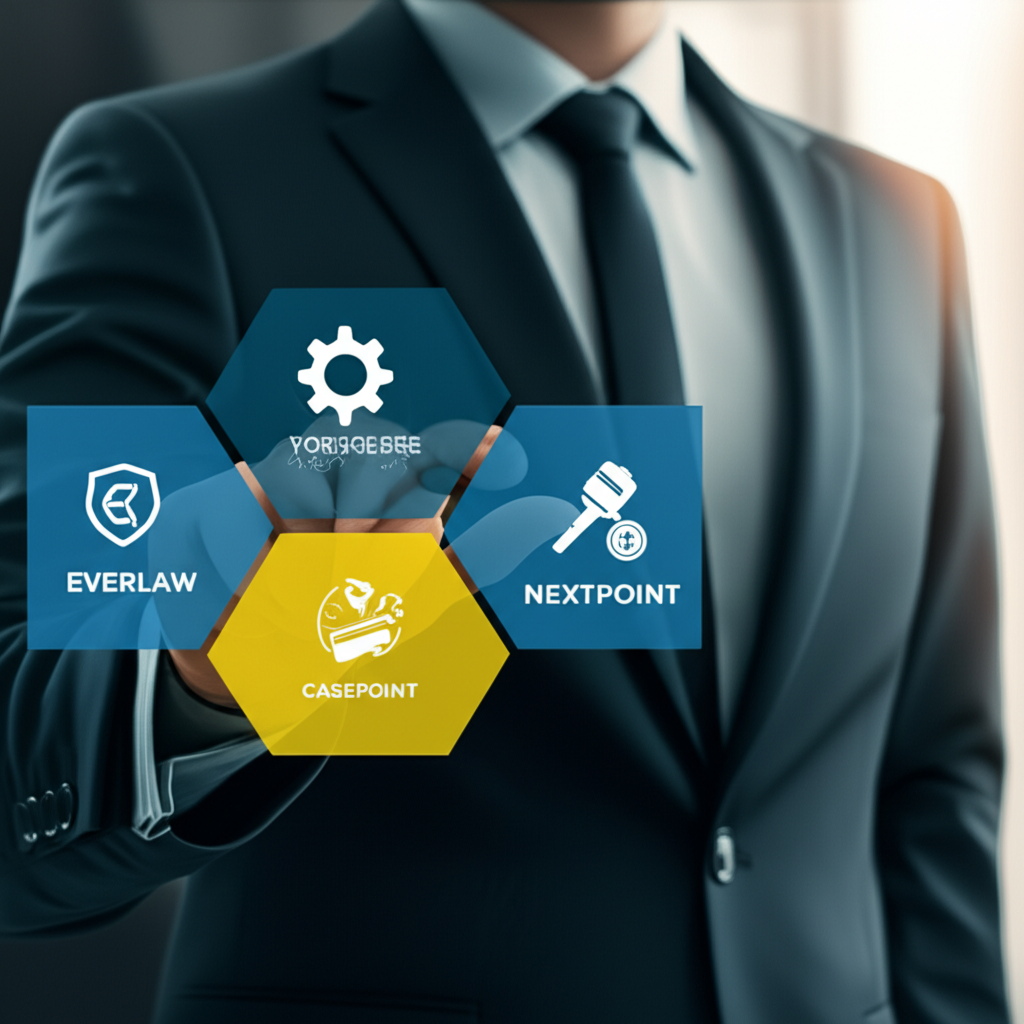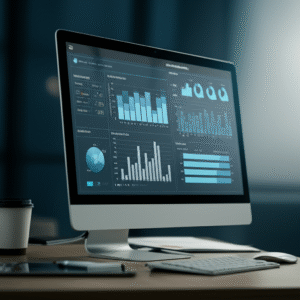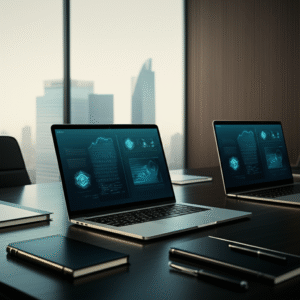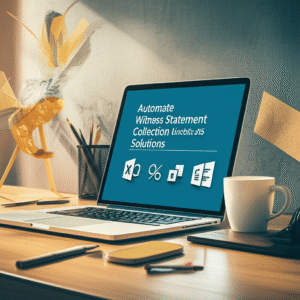Everlaw vs Casepoint vs Nextpoint: Which Ediscovery Platform Fits Your Law Firm or Legal Department?
Choosing the right ediscovery and litigation platform can accelerate case strategy, reduce risk, and improve client outcomes. Everlaw, Casepoint, and Nextpoint each promise speed, accuracy, and cost control—but they differ in workflows, integrations, compliance, and pricing approaches. This week’s comparison unpacks how these three leaders stack up for law firms and legal departments seeking scalable, defensible, and collaborative ediscovery.
Table of Contents
- Overview of the Platforms
- Features & Capabilities Comparison
- Compliance, Security & Risk Management
- Collaboration & Knowledge Sharing
- User Experience & Learning Curve
- Integration with Microsoft 365 and Other Legal Tools
- Pricing & Licensing Models
- Side-by-Side Comparison Table
- Pros & Cons of Each Solution
- Best Fit Scenarios
- Decision-Support Framework
- Verdict
- Conclusion & Next Steps
Overview of the Platforms
Everlaw is a cloud-native ediscovery and litigation platform known for fast search, visual analytics, and a tightly integrated trial-prep suite (Storybuilder). It’s popular with firms handling complex, document-heavy matters and with public sector teams that require robust security.
Casepoint positions itself as an end-to-end enterprise platform: legal hold, collection connectors, processing, review, analytics, and productions—all under one roof. It’s frequently adopted by corporate legal and government agencies requiring stringent compliance and broad matter management.
Nextpoint focuses on simplicity and predictability for law firms. It offers cloud-based collection, processing, review, deposition/transcript management, and trial prep in an approachable interface—often with pricing structures that are easier for small to mid-sized firms to digest.
Expert Tip: Before comparing point features, map your firm’s workflows—legal hold through trial—and quantify volumes, concurrency, and deadlines. The “best” platform is the one that removes the most friction in your actual process.
Features & Capabilities Comparison
Core Ediscovery Workflow
All three platforms handle ingestion, processing/deduplication, search, review workflows, coding, redactions, and productions. Where they diverge is in the depth of analytics, automation, and downstream trial preparation.
- Everlaw: Advanced analytics (email threading, near-duplicate detection), active learning/predictive coding, visual search, and powerful timeline/chronology via Storybuilder to connect facts, people, and issues.
- Casepoint: Highly configurable review workflows, AI-assisted review (TAR/Continuous Active Learning), extensive connectors for enterprise data sources, and built-in legal hold to standardize upstream preservation.
- Nextpoint: Streamlined ingestion and review with practical automation (threading, near-dupe), fast setup, and easy transitions into depo and trial modules—particularly suited to litigation teams needing to move from review to courtroom quickly.
Analytics and AI
Each platform offers technology-assisted review and analytics; differences show up in usability and transparency of models.
- Everlaw: Intuitive visuals make it easier to strategically sample, validate, and defend results to courts and clients.
- Casepoint: Enterprise-grade active learning supports large-scale, multi-matter projects with granular control across custodians and data types.
- Nextpoint: Practical, “just enough” analytics focused on accelerating review decisions without overcomplicating workflows for smaller teams.
Trial Preparation
- Everlaw: Storybuilder shines for case themes, timelines, and collaborative workups linking documents and facts.
- Casepoint: Robust productions and reporting; trial features are available but less central than in Everlaw or Nextpoint.
- Nextpoint: Strong deposition and transcript management, exhibit handling, and trial presentation workflows tailored for litigation teams.
Compliance, Security & Risk Management
For many legal departments and regulated firms, security posture determines the shortlist. All three vendors operate secure, cloud-based environments with encryption in transit and at rest, role-based access controls, SSO/SAML, multifactor authentication, and detailed audit logging.
- Everlaw: Cloud-native with enterprise-grade controls and security attestations such as SOC 2 Type II. A FedRAMP Moderate–authorized environment is available for public sector/regulated matters.
- Casepoint: Enterprise and government-grade security and attestations (including SOC 2 Type II, and commonly ISO-aligned practices). Casepoint for Government is FedRAMP Moderate Authorized, widely used by agencies and courts.
- Nextpoint: Secure, cloud-based environment with SOC 2 Type II and standard legal industry controls. Suitable for firms that do not require FedRAMP-authorized hosting.
Each platform supports defensible chain-of-custody, granular permissions, and export logs for productions—key for regulatory and litigation challenges.
Collaboration & Knowledge Sharing
Collaborative features reduce rework and create a shared view of case strategy.
- Everlaw: Real-time collaboration across review and Storybuilder. Notes, issues, and timelines keep counsel and experts aligned.
- Casepoint: Configurable roles, permissions, and shared workspaces that scale across large review teams and external counsel.
- Nextpoint: Practical collaboration features for case teams, with emphasis on depo/trial coordination and easy client/expert sharing when needed.
User Experience & Learning Curve
Adoption hinges on how quickly lawyers and litigation support can be productive.
- Everlaw: Clean UI and visual search lower ramp time for attorneys; advanced admin features may require short onboarding for power users.
- Casepoint: Comprehensive, enterprise-grade toolset with more configuration options—excellent for admins and power users; reviewers need standard training.
- Nextpoint: Very approachable; ideal for firms wanting fast time-to-value without heavy configuration.
Integration with Microsoft 365 and Other Legal Tools
Corporate legal and many firms rely on Microsoft 365 for communication, collaboration, and retention. Smooth ingestion and preservation from M365 is essential.
- Everlaw: Supports cloud collections and direct import from common SaaS sources, with options for Microsoft 365 (Exchange, OneDrive, SharePoint) via secure connectors or export. Plays well with Microsoft Purview eDiscovery (Standard/Premium) workflows for upstream culling before export to review.
- Casepoint: Strong native connectors for Microsoft 365 (including Teams), Google Workspace, Slack, and more; integrated legal hold supports end-to-end preservation and defensible collection from these sources.
- Nextpoint: Practical Microsoft 365 ingestion through PST/SharePoint exports and available connectors; straightforward handling of Slack/Google data through supported import routines and partner-based collections when needed.
All three integrate with common litigation tech (transcript tools, imaging/OCR, production validators) and support standard export formats for downstream use.
Pricing & Licensing Models
These vendors price differently, so align licensing with your matter profile, average data volumes, and concurrency.
- Everlaw: Typically per-GB hosting and processing with options for subscriptions/annual agreements. Predictable for steady volume; costs can scale with data-heavy matters.
- Casepoint: Enterprise agreements and per-GB/user models depending on scope (including legal hold modules). Attractive for corporate or agency portfolios with many concurrent matters.
- Nextpoint: Known for simplified, firm-friendly pricing with subscriptions and matter-based options that reduce surprises. Good fit for small-to-midsize firms managing variable caseloads.
Tip: Model three scenarios—small, medium, and large matters—and calculate total cost of ownership across 12–36 months, including migrations, conversions, and productions.
Side-by-Side Comparison Table
| Category | Everlaw | Casepoint | Nextpoint |
|---|---|---|---|
| Core Ediscovery | Ingestion, processing, review, productions; strong visual analytics | End-to-end platform incl. legal hold; scalable for enterprise | Streamlined ingestion/review; practical automation |
| AI/Analytics | Active learning, threading, near-dupe, visual search | Enterprise-caliber TAR/CAL across large custodial sets | Targeted analytics for faster decisions |
| Trial Preparation | Storybuilder for themes, timelines, and case strategy | Robust productions; trial features available | Strong depo/transcripts and trial workflows |
| Microsoft 365 | Cloud imports/connectors; compatible with Purview workflows | Native connectors for M365/Teams; integrated legal hold | Exports/connectors supported; simple M365 ingestion paths |
| Other Integrations | Slack, Google, common litigation tools | Slack, Google, enterprise sources; extensive connectors | Slack/Google via imports; partner-supported collections |
| Security | SOC 2 Type II; enterprise-grade controls | SOC 2 Type II; enterprise/government controls | SOC 2 Type II; legal industry controls |
| FedRAMP | Available FedRAMP Moderate environment (for government use) | FedRAMP Moderate Authorized (Casepoint for Government) | Not typically FedRAMP |
| Collaboration | Real-time review + Storybuilder collaboration | Role-based, multi-team workspaces | Team-friendly review, depo/trial coordination |
| Pricing Approach | Per-GB and subscription options | Enterprise agreements; per-GB/user options | Subscription and matter-based, predictable |
| Best For | Complex litigation with narrative/trial emphasis | Enterprise legal/government with stringent compliance | Small-to-mid firms needing speed and simplicity |
Pros & Cons of Each Solution
Everlaw
- Pros: Excellent UI; fast search; Storybuilder boosts trial readiness; strong analytics; good for cross-team collaboration.
- Cons: Per-GB costs can rise on very large matters; advanced features may require process discipline to fully leverage.
Casepoint
- Pros: End-to-end platform with legal hold; enterprise connectors; FedRAMP Moderate option; scalable governance; suitable for agencies/corporates.
- Cons: More configuration and administration; can feel heavier for smaller matters; pricing best optimized at portfolio scale.
Nextpoint
- Pros: Fast onboarding; intuitive for litigators; strong deposition/trial workflows; predictable pricing models.
- Cons: Lighter on advanced enterprise features/connectors; not designed for highly regulated hosting like FedRAMP.
Best Fit Scenarios
- Small Firms/Lean Litigation Teams: Nextpoint’s ease of use and predictable pricing fit smaller caseloads and trial-focused practices.
- Mid-Large Firms Handling Complex Matters: Everlaw’s analytics and Storybuilder help align large teams and experts on case themes.
- Corporate Legal and Government: Casepoint’s legal hold, connectors, and FedRAMP Moderate authorization support strict compliance and enterprise governance.
Decision-Support Framework
Use this checklist to score each platform (1–5) and tally your totals.
- Matter Profile Fit: Does the platform map cleanly to your end-to-end workflow (hold to trial)?
- Data Sources: Native connectors for Microsoft 365 (incl. Teams), Slack, Google, and archives you actually use.
- Scale & Performance: Search speed, analytics responsiveness, and stability under peak loads.
- Compliance Needs: Required attestations (e.g., SOC 2 Type II) and regulatory hosting (e.g., FedRAMP Moderate).
- Collaboration & Trial Prep: Tools for issue coding, timelines, depo/transcripts, and presentation.
- Usability: Time-to-first-review for attorneys; admin control without steep overhead.
- Integration with Microsoft 365: Collection options, Purview alignment, and retention/hold interoperability.
- Reporting & Defensibility: Audit logs, reviewer metrics, QC workflows, and production validation.
- Pricing Predictability: Total cost across typical matter sizes and concurrency.
- Vendor Support & Training: Availability, responsiveness, and onboarding resources.
Three-Stage Selection Workflow
- Scope & Risk: Define data sources, compliance requirements (e.g., FedRAMP), volume, and timelines.
- Pilot & Validate: Run a 10–20 GB sample across each platform; measure search speed, QC accuracy, and reviewer throughput.
- Total Cost Model: Compare 12–36 month TCO with two small, two medium, and one large matter, including productions and storage.
Verdict
Everlaw: Best for litigation teams prioritizing speed, intuitive analytics, and trial readiness. Storybuilder and visual workflows add strategic value, especially in complex matters where narrative wins cases.
Casepoint: Best for enterprise legal and government. Integrated legal hold, broad data connectors, and FedRAMP Moderate authorization make it a strong choice for regulated, multi-matter portfolios with strict governance.
Nextpoint: Best for small to midsize firms needing a straightforward, end-to-end tool that moves seamlessly from review to depositions and trial, with predictable pricing and minimal overhead.
If your primary need is enterprise compliance and standardized preservation, pick Casepoint. If you want rapid case insights and collaborative trial prep, choose Everlaw. For budget-friendly, litigation-focused workflows, go with Nextpoint.
Conclusion & Next Steps
Everlaw, Casepoint, and Nextpoint are all capable ediscovery platforms—but the right choice depends on your data sources, compliance profile, and how your teams work. Map your workflow, run a structured pilot, and model total cost across your real matter mix. A tool that aligns with your process will shorten timelines, control risk, and deliver clear value to clients.
Want expert guidance on improving your legal practice operations with modern tools and strategies? Reach out to A.I. Solutions today for tailored support and training.





